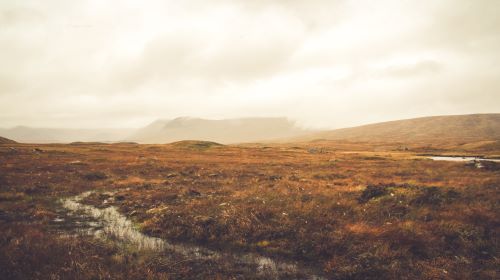
02 September 2022
Defra will ban the sale of horticultural peat use by amateur gardeners by 2024. This ban follows a public consultation by the government, where over 95% of respondents said they wanted some form of ban on the sale of peat. Peat soils are crucial carbon stores, though only roughly 13% of UK peatlands are in their near-natural state.
More farmers can directly apply to the Sustainable Farming Incentive soil standards. Defra has announced that from 1st September, farmers on the Countryside Stewardship or Environmental Stewardship schemes can now apply directly to the SFI soil standards via the online Rural Payment service , like farmers who are not part of those schemes. Previously farmers in the stewardship schemes had to contact the RPA to get access to the SFI.
Drought has been declared across the whole of the South West region in England. The Environment Agency based their assessment of drought on the dryness of soil, especially through soil moisture deficit, alongside other environmental factors, and concluded that Bristol, Somerset, south Gloucestershire, and parts of Wiltshire are joining the rest of the South West in being in drought.
The Farmers Guardian considers the development of post-Brexit soil policy in the UK nations in an article published this week. It quotes Ellen Fay, SSA’s co-director, explaining that whilst soil policies are devolved, they require some coordination as soils and the ecosystems they impact do not recognise borders. She also highlights the potential competing impacts the current climate, energy and food crises could have.
The Landworkers Alliance (LWA) advocates for agroecological farming to be added to school curriculums in order to help encourage school leavers to consider a career in agroecology. LWA released a new report which looks at the barriers for young people to undertake agroecological farming and take an interest in improving soil health. Restoring soils can be a key goal for young people in the face of climate change, but they often lack awareness of the opportunities in agroecology.
Soils used for Argentinian wine-making have become exhausted, leading to efforts towards regenerative wine-production. Argentinian wine-makers are now looking at regenerating their soils through considering biodiversity and water, aiming to efficiently use water and avoiding soil erosion.
Marie Claire magazine discusses the environmental impact of microplastics including on soils. SSA’s co-director, Ellen Fay, highlights how microplastics can contaminate soils not just through pesticides, but also by organic agricultural use of plastic sheeting to tackle weeds.
As schools and universities are starting a new academic year, the Global Soil Biodiversity Initiative looks at teaching the essence of soil biodiversity. Prof. Loren Byrne discusses his use of hands-on methods to teach soil ecology and leave long-lasting knowledge of soil biodiversity. He advocates for an expansion of education resources and methods that increase society’s soil ecological literacy.
Finally, our summer newsletter, summarising the SSA’s work and projects over the last quarter of the year, is now available. If you haven’t already, you can sign up to our news and updates at the bottom of our homepage here.